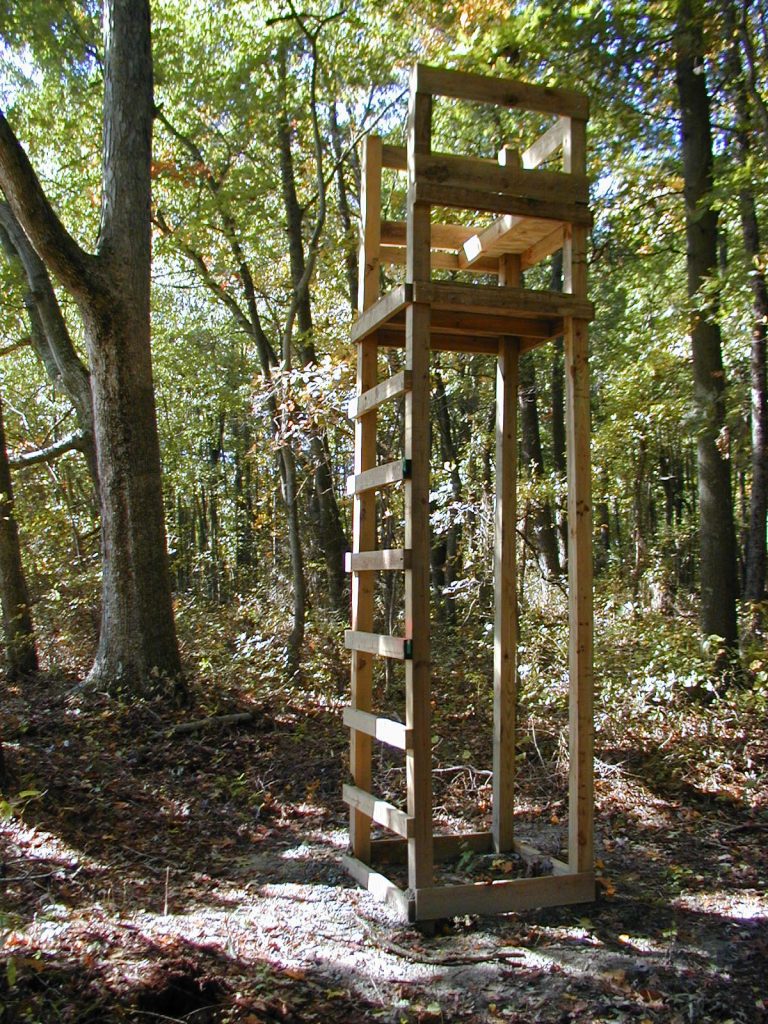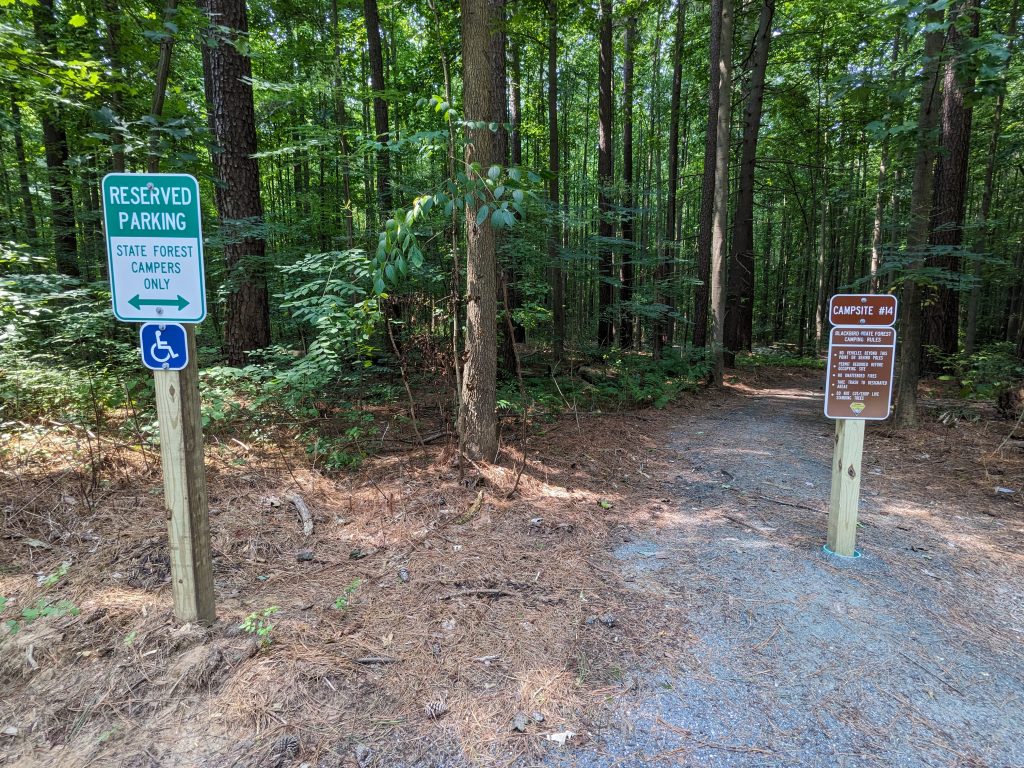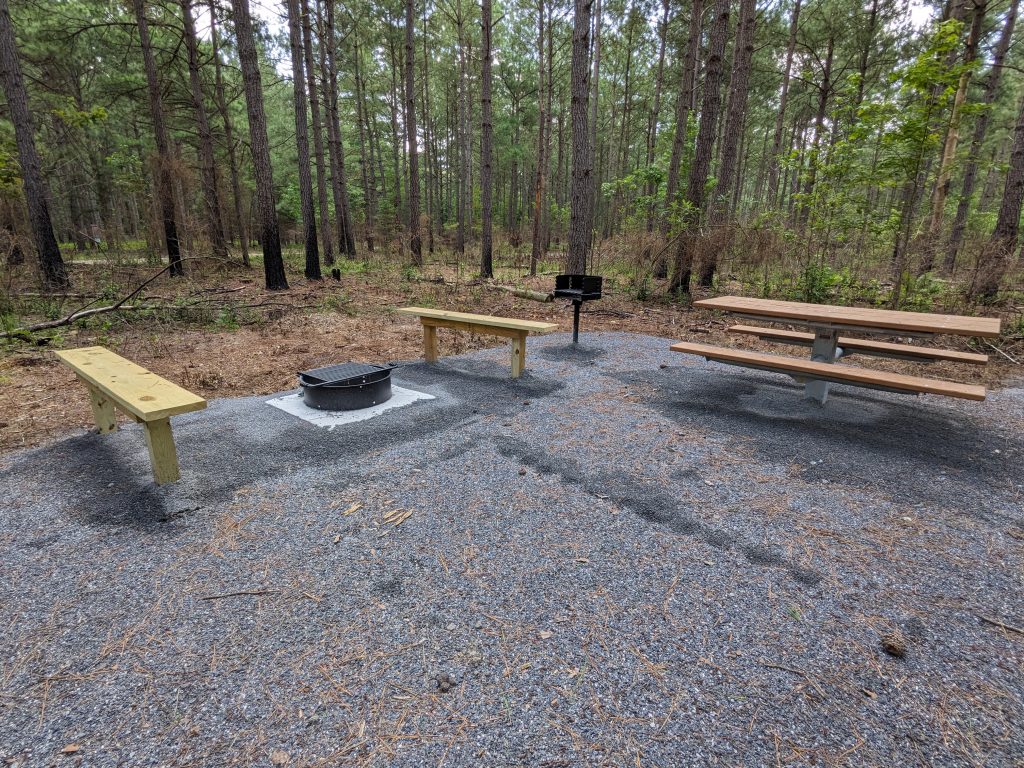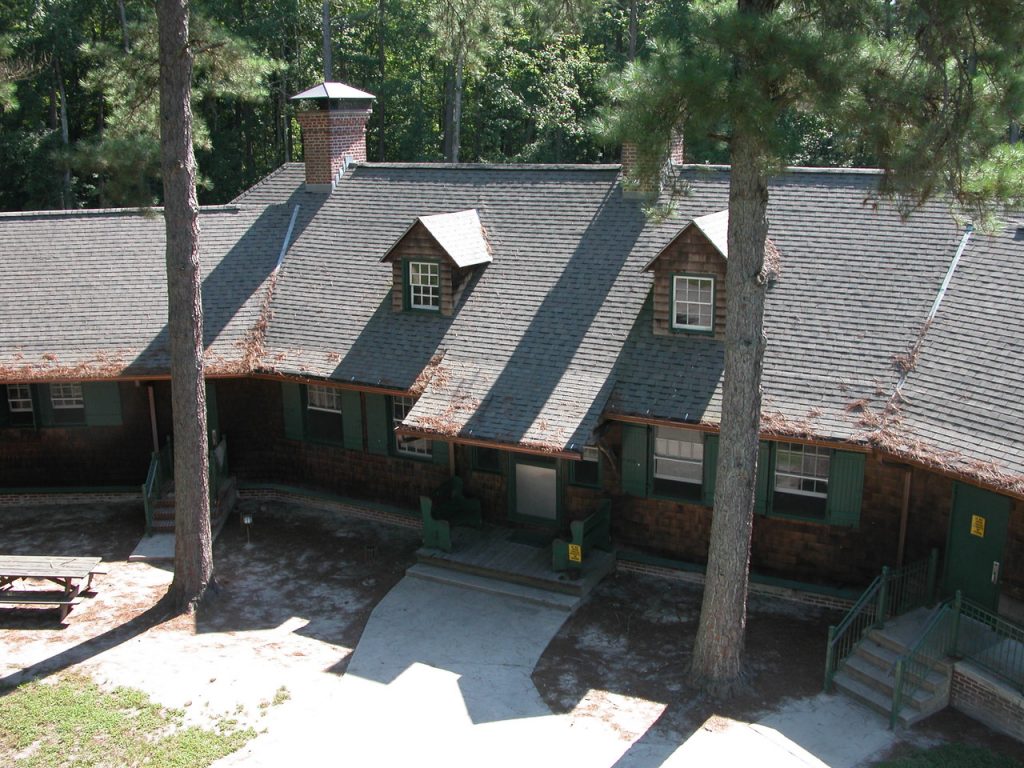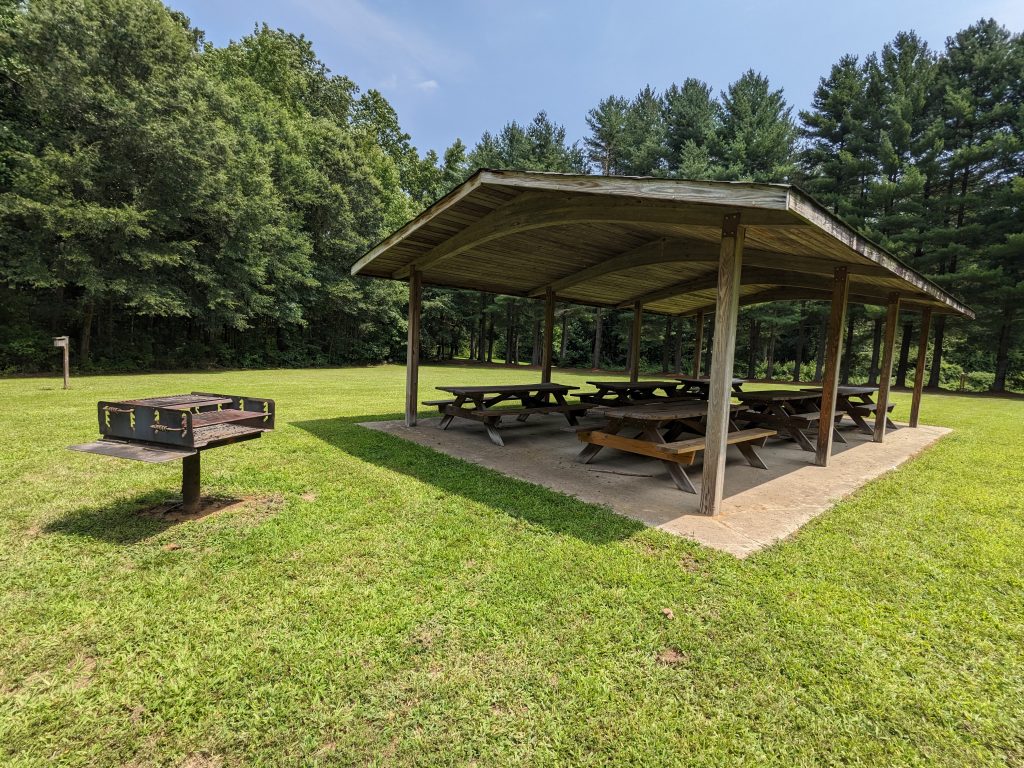DOVER, Del. (April 22, 2024) – The Delaware Forest Service hosted the Daughters of the American Revolution (DAR), Col. John Haslet Chapter in Dover, and other volunteers to establish a memorial plot dedicated to former State Forester Walter F. Gabel, who served in this role from 1974 to 1991.
“We are excited about this DAR tree planting, not only because it is dedicated to Walt Gabel, but because the work by the Daughters of the American Revolution highlights the importance of the positive impacts of conservation efforts here in Delaware and throughout the United States,” said Delaware State Forester Kyle Hoyd. “This planting is a historical representation of penny pine plantings by DAR on the Headquarters Tract in the early 1900s. The same loblolly pine seedlings that we are planting today, only 85 years after those initial penny plantings, now cost a quarter each.”
One of DAR’s ‘service’ elements includes a conservation program devoted to improving the environment and educating the public on conservation issues. On June 3, 1939, members of the Delaware DAR (led by the Colonel John Haslet Chapter) planted the first DAR Forest of 10,800 “Penny Pines” in an area now the Redden State Forest’s Headquarters Tract. This National “Penny Pine” program initiative ($.01/tree) charged states across our Nation to establish at least an acre memorial forest by the 1941 National DAR 50th Anniversary. Donations of $5 secured 500 pine seedlings to be planted on that acre. The Civilian Conservation Corp (CCC) was empowered to do the planting, although volunteers joined State Forest staff and CCC employees in Delaware to plant the site.
The Delaware Forest Service manages three state forests, including Redden, Blackbird, and Taber, covering more than 21,290 acres.
“I am thrilled Delaware Daughters helped make this event possible,” said Barbara Seningen, Regent-Delaware State Society, NSDAR. We recognize and support the planting of trees as they help reduce carbon dioxide and produce oxygen through photosynthesis, a process critical to mitigating climate-threatening forces.”
According to Dorothy Abbott, Conservation Chair of the DAR-Colonel John Haslet Chapter, “Walter F. Gabel dedicated most of his life to conserving and managing forest lands while pursuing his desire for American patriotism. Both his grandmothers and his three daughters are also DAR members.”
Establishing this memorial forest as a united effort celebrates Mr. Gabel’s passion for conservation and history. The memorial planting site on the Otis-Webb Tract was selected because the existing area is a prime location as an open field to convert back to trees, a process known as afforestation. Once the seedlings grow, this plot will help create forest diversity, including food plots for wildlife.
Former state foresters Bob Tjaden (1992-1994), E. Austin Short III (1995-2010) and Michael Valenti (2011-2022) were also invited for the tree planting.
The volunteers planted loblolly pine tree seedlings on an acre parcel within the 101-acre Otis-Webb Tract, south of Redden Road. This land was added to the Redden State Forest Complex in 2015. Funds for the purchase came from Delaware’s Open Space Program. Approximately one-half of the Otis-Webb Tract already supports a growing mixed hardwood/pine forest.
About the Daughters of the American Revolution
DAR was founded in 1890 as a nonprofit, nonpolitical volunteer women’s service organization dedicated to promoting patriotism, preserving American history, and securing America’s future through better education. Today, DAR consists of over 190,000 members in 3,000 chapters worldwide. DAR members can prove lineal descent from a patriot of the American Revolution and are dedicated to promoting historic preservation, education, and patriotism, via commemorative events, service to veterans, scholarships and educational initiatives, citizenship programs, and community service. For more information, visit www.dar.org.
About Delaware Forest Service
The mission of the Delaware Department of Agriculture’s Delaware Forest Service (DFS) is to conserve, protect, and enhance Delaware forests and their resources for the public through education, management, demonstration, promotion, and providing technical services in a timely and efficient manner. DFS offers a wide range of services to help Delawareans manage and improve their forest resources. These services are divided into three categories: conservation, protection, and education. For more information, visit the website de.gov/forestry and connect with DFS on Facebook, Twitter/X, or Instagram.
